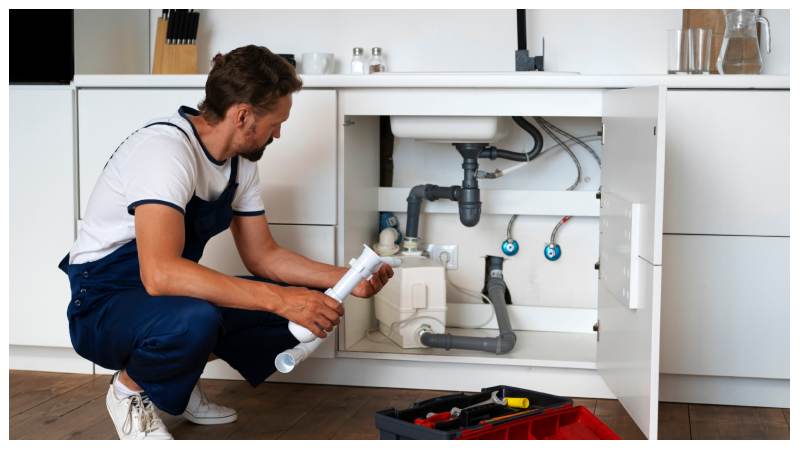A home’s plumbing system is one of its most essential components, responsible for delivering clean water and removing waste safely and reliably. Over time, however, inefficiencies can develop due to aging pipes, leaky fixtures, or outdated appliances that consume more water than necessary. These problems not only increase monthly utility bills but also place unnecessary strain on the system as a whole. Improving plumbing efficiency involves making thoughtful upgrades, addressing minor issues before they escalate, and maintaining the system on a regular basis. By doing so, homeowners can conserve water, save money, and extend the life of their plumbing.
Identifying Leaks and Reducing Waste
One of the first steps in improving plumbing efficiency is identifying and addressing leaks, which are among the most common sources of water waste. Even small drips from faucets or hidden leaks in pipes can add up to hundreds of gallons of wasted water each month. Inspecting visible fixtures and keeping an eye out for changes in water pressure or unexplained spikes in bills are key ways to detect problems early. Once leaks are repaired, efficiency improves immediately, and costs are reduced. This also helps prevent water damage that could compromise the home’s structure. For issues that require professional attention, many homeowners turn to Greenville plumbing repair services to ensure the job is handled correctly and safely. By eliminating leaks and controlling waste, the plumbing system operates more smoothly and delivers reliable performance.
Upgrading Fixtures and Appliances
Another effective way to boost efficiency is by upgrading old fixtures and appliances. Modern faucets, showerheads, and toilets are designed to use less water while still maintaining strong performance. Low-flow models can significantly reduce water use without compromising comfort, making them a wise investment for both efficiency and sustainability. Replacing outdated appliances, such as dishwashers and washing machines, with water-efficient versions also has a noticeable impact on utility costs. These upgrades not only conserve water but also reduce the strain on the plumbing system by decreasing the daily volume of water flowing through it. While there is an upfront cost to replacing older fixtures, the long-term savings on water bills and the extended life of the plumbing system make it worthwhile. Homeowners who make these upgrades often find that the improvements pay for themselves over time.
Maintaining Drains and Water Heaters
Proper maintenance is essential for keeping a plumbing system efficient, and this includes regular attention to drains and water heaters. Clogged drains slow down water flow and create unnecessary strain on pipes, while neglected water heaters often accumulate sediment that reduces efficiency and increases energy consumption. Cleaning drains regularly and flushing the water heater according to the manufacturer’s recommendations can help prevent these issues. Insulating hot water pipes is another simple step that improves efficiency by reducing heat loss, allowing water to stay warmer as it travels through the system. Maintenance not only improves day-to-day efficiency but also helps avoid sudden breakdowns that can be costly to repair. By keeping the system clean and functioning smoothly, homeowners extend its lifespan and reduce the likelihood of unexpected issues, ensuring consistent performance over time.
Improving the efficiency of a plumbing system requires attention to detail, smart upgrades, and consistent maintenance. By repairing leaks, upgrading to water-saving fixtures, and maintaining drains and water heaters, homeowners can significantly reduce waste and lower their monthly bills. These steps also protect the long-term health of the plumbing system, preventing problems before they become costly emergencies. An efficient plumbing system is not only about saving money—it also supports sustainability by conserving one of the planet’s most valuable resources: water. With thoughtful improvements, any home can benefit from a system that is more reliable, cost-effective, and environmentally responsible.

